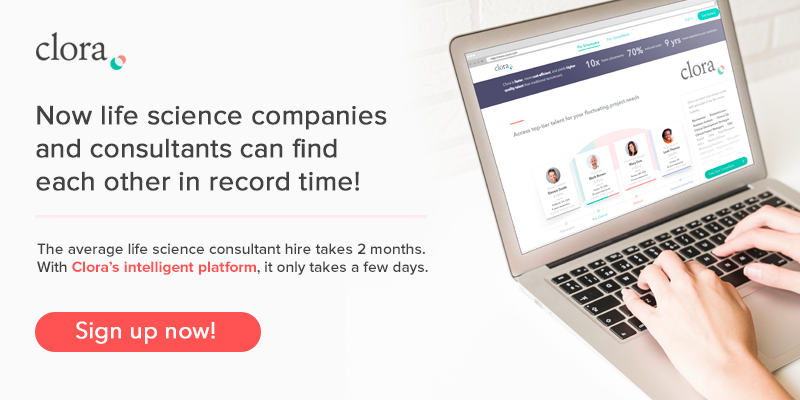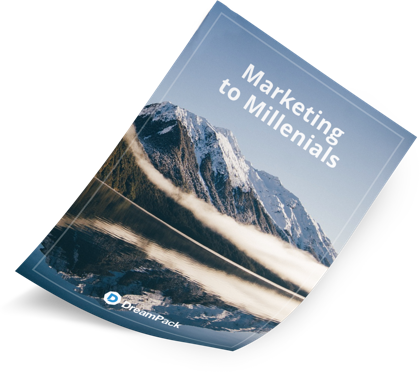The life science industry is in a constant state of change, and this includes the life science consulting market. Whether you’ve provided consulting services for years or you’re fairly new to consulting, it’s important to know how to position yourself in today’s market to consistently acquire the most fulfilling and exciting opportunities.
Below you’ll find some simple steps to help you position yourself as an accomplished life sciences consultant. Your goal should be to give clients a deep understanding of how your unique skill sets fit into their development process.
Clearly Define Your Expertise
- A list of previous projects with results and accomplishments to share with prospective clients.
- Create a skills inventory by writing down every skill or type of project where you have experience. From this list, choose the top three to five skills/projects that you enjoy doing the most.
- Compile non-confidential/redacted work samples for those top skills with key metrics, to illustrate both your experience and your expertise.
About Clora’s Expertise Matching Algorithm
Consultants who use Clora can list their experience and top skills within their profile. This information is used in our matching algorithms to pair companies with consultants who best fit their needs.
As an example, a project manager with pre-clinical experience will likely be paired to different projects than a project manager with Phase IV clinical trial experience.
Understand the Market
- Talk to potential hiring managers to learn what they look for in a consultant.
- Network with other consultants by joining a local or online consulting group where you are able to share contacts, ideas, and experiences.
- Set your pricing by determining what the market rate is for someone of similar experience and expertise. You can choose to either go with the market rate or bump up your price a bit if you believe that you have expertise that many other consultants can’t offer.
Define Your Audience
- Decide how well your unique skills align with the needs of your target clientele. Work to determine if you’re better suited for a large biopharma company, a start-up, or a CRO.
- Identify specific types of engagements that will allow you to add the most value.
Craft Your Personal Value Proposition
Based on the analysis of your competition and audience, determine what is unique and extraordinary about your skill sets and background. Depending on your market, you may think that a lot of people do what you do, but that’s likely not the case given the hyper-specialization required in this industry. That’s why you need to be able to explain why your working style and unique experience are so compelling.
How to Create a Value Proposition
Being able to develop a powerful value proposition (aka a value prop) is an important skill for any consultant.
The most important thing about a value prop is that it places emphasis on the specific value to the reader and isn’t overly focused on the writer. Here are two examples of basic consultant value props:
- “[Type of companies] with [type of project] employ me to [service conducted] to [value generated].”
- “I help [type of companies] [value produced] on [type of projects] by leveraging my [type of expertise].”
In practice, these look like:
- “Biotech companies who are conducting clinical trials in oncology employ me to manage complex, mission-critical projects to ensure their timely completion.”
- “I help pharmaceutical companies improve the likelihood of completing their clinical trials on time and on budget by leveraging my expertise in clinical trials and proven project management methodology.”
The best value props are as succinct as possible. Though some mediums such as an “About Me” section of a website are a good opportunity to add some personality to the value prop. In these longer-form mediums, it’s advisable to end with suggested next steps such as, “Email me to learn more about how my methodology helped a past client complete a project two months early.”
Market Yourself
- Put yourself out there across multiple channels. A personal website is a modern version of a resume and a valuable resource for potential clients. To take it a step further, start a blog highlighting your area of expertise.
- Referrals are, by far, your best marketing tool. It’s free and easy. Ask clients you’ve previously worked with for a written testimonial. Depending on how busy the client may be, it’s often a good idea to offer to write a testimonial as a starting point. Communicate the specific task that you performed and allow them the opportunity to edit freely.
- Register as a consultant on an industry-specific platform like Clora (shameless plug!) to receive opportunities that you’re qualified for.
Get Hired
- Inquire about opportunities that interest you and for which your skill-set, and availability are a match.
- Consider interviewing for a project when it’s offered, even if you are not sure the project is a great match. Sometimes the scope of work may have changed since it was first described or there might be ancillary opportunities that you weren’t aware of.
- Put together a consulting proposal that clearly articulates what you’ll be working on, as well as your list of proposed deliverables, timeline, and pricing.
- Close the deal with a signed agreement.
It’s important to ask the right questions and position yourself appropriately to ensure you find the best fit in any consulting opportunity, no matter how big or small. The life science industry is a tight-knit community and it’s important that you maintain a strong reputation across your client base in order to benefit from positive word-of-mouth growth.






